Pneumonia often increases during the changing seasons, especially in the current weather in the North, where temperature changes, erratic rain and sunshine cause viruses and bacteria to thrive. The difference in day and night temperatures makes the airways difficult to adapt, sensitive and susceptible to infection.
According to Dr. Mai Thi Hanh - Cam Khe District Medical Center, Phu Tho, pneumonia is a common disease in children and the elderly. However, recently, the number of young people treated for pneumonia at the Internal Medicine Department is not rare, the symptoms are often not loud but when taking X-rays and lung CT scans, there are lesions.
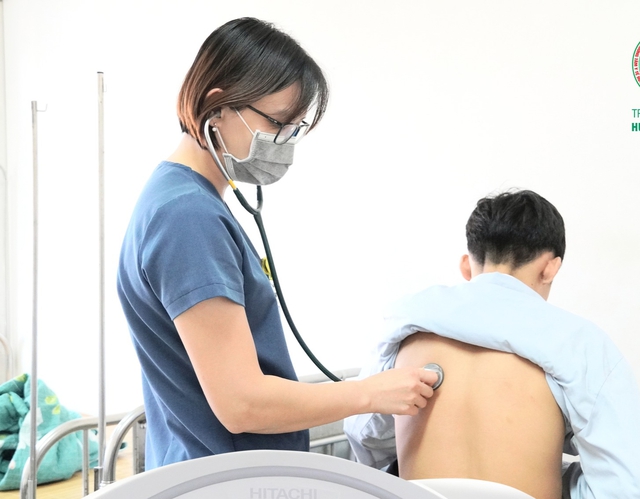
When experiencing symptoms of persistent cough, fever, chest pain, difficulty breathing... patients need to be examined early. Photo: BVCC
The most recent case is a 17-year-old male patient with a history of good health. 10 days before being admitted to the hospital, the patient had a persistent cough, then coughed up phlegm mixed with pink fluid, and was examined and treated at a medical facility but did not recover, so he was hospitalized for treatment.
In addition to the symptoms described, the doctor examined the lungs and found small moist rales in both lungs. The CT scan showed ground-glass lesions in the S6 lobe of the left lung. The patient was diagnosed with pneumonia and prescribed antibiotics. After 11 days of treatment, the patient was stable and discharged from the hospital.
To avoid complications caused by pneumonia, when experiencing symptoms of persistent cough, fever, chest pain, difficulty breathing... patients need to go to a medical facility to be examined and treated by a doctor. Depending on the severity, the patient may be prescribed home treatment or hospitalized for inpatient treatment.
Signs of pneumonia, be careful when the weather changes
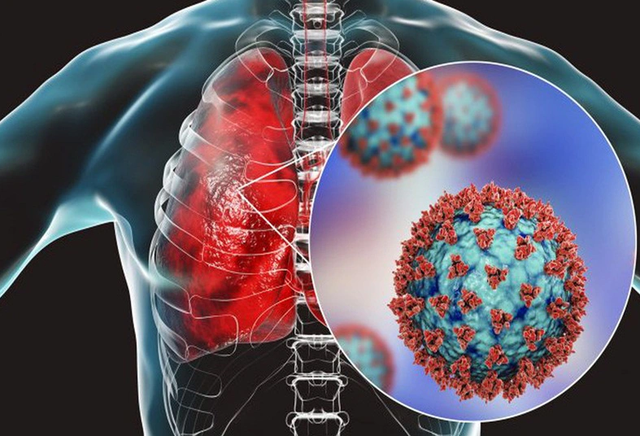
Illustration
In general, atypical bacterial pneumonia often progresses slowly at first, with an incubation period of 2-3 weeks.
Initially, the patient will cough, expectorate phlegm, have a sore throat, and have a mild fever similar to the flu. Then the disease gradually progresses to high fever, cough, chest pain, and difficulty breathing...
If the disease is not detected and treated early, the patient may experience dangerous complications such as: lung abscess, empyema, pleural effusion, pericarditis, septic shock, progressive respiratory failure...
How to prevent pneumonia
According to medical experts, to prevent pneumonia, it is necessary to practice proper hygiene:
- Wash hands regularly with soap before eating, after using the toilet, and ensure a clean living environment.
- Develop healthy living habits including adequate rest, healthy eating, and prioritizing warm foods.
- Exercise regularly, reduce exposure to toxic chemicals...
- Do not smoke or abuse alcohol, beer, or other alcoholic beverages.
- Some vaccines help prevent pneumonia, haemophilus influenzae type b (Hib), influenza, measles, whooping cough, pneumococcal, chickenpox... Children should be fully vaccinated, adults over 65 years old should be vaccinated against pneumococcal, influenza, whooping cough.
Source: https://giadinh.suckhoedoisong.vn/thanh-nien-17-tuoi-o-phu-tho-nhap-vien-gap-vi-viem-phoi-bac-si-khuyen-cao-canh-giac-voi-dau-hieu-nay-17224100812463189.htm




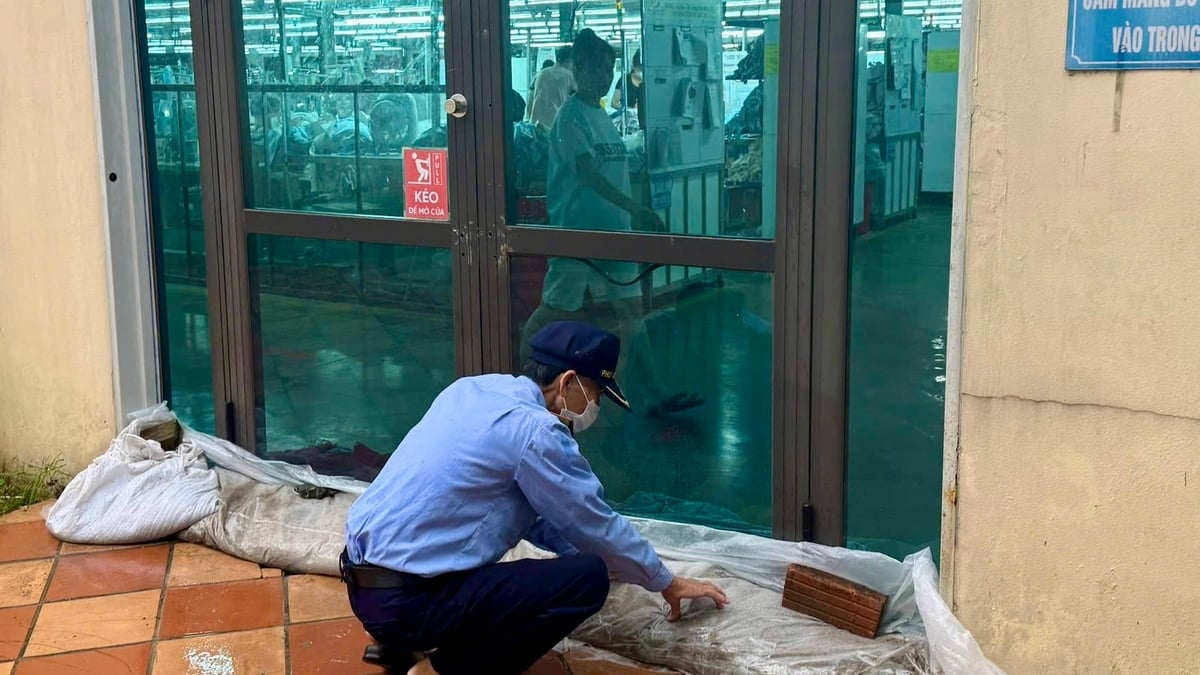

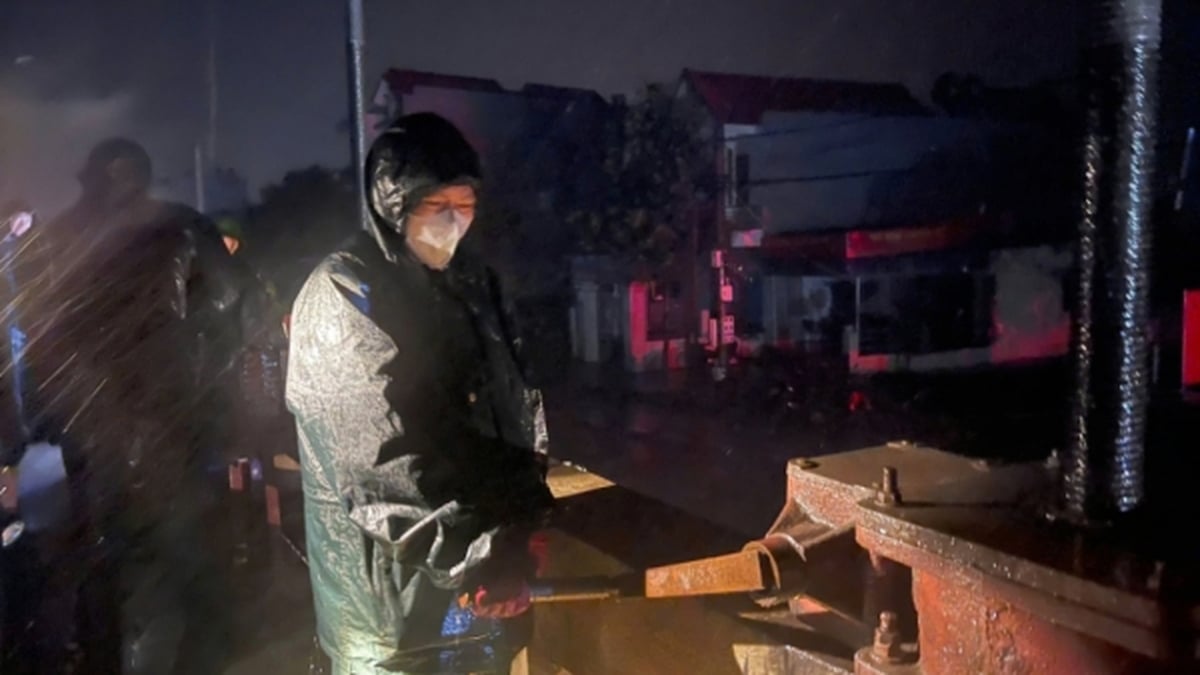

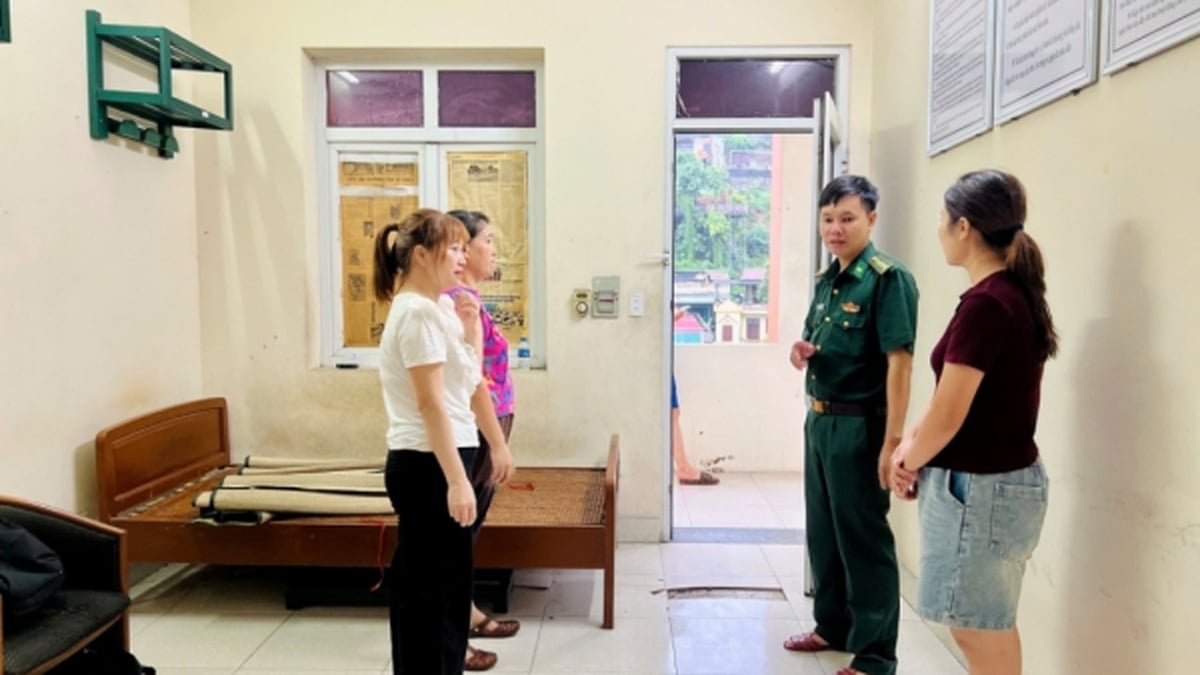
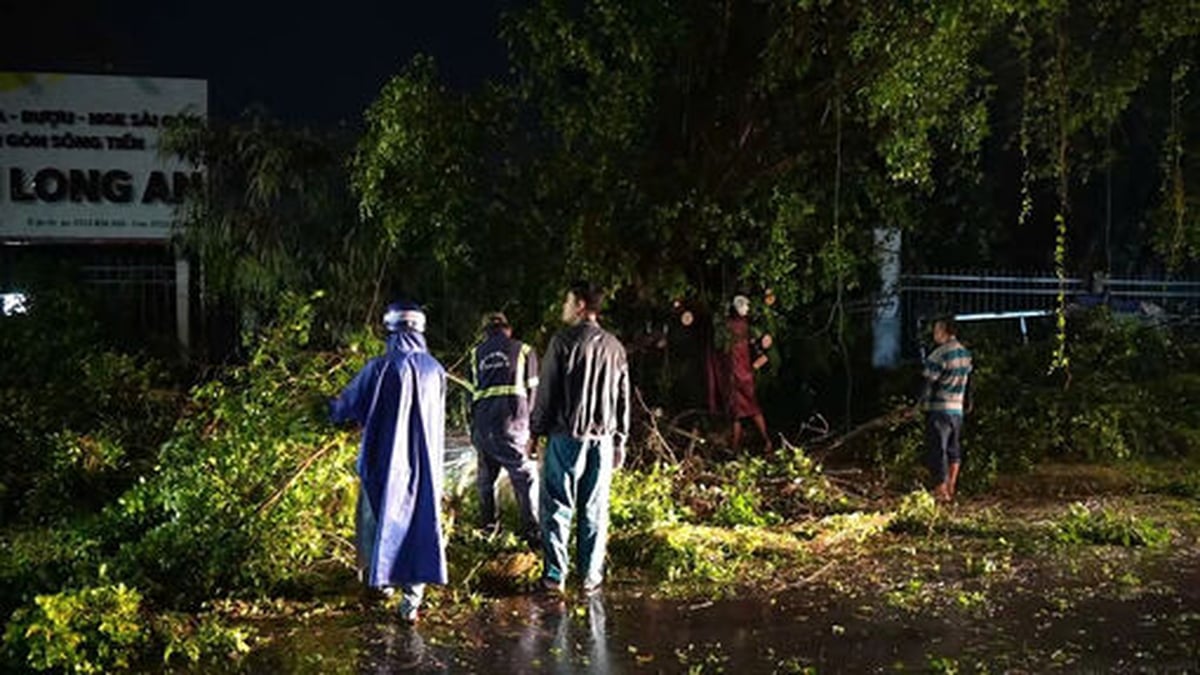

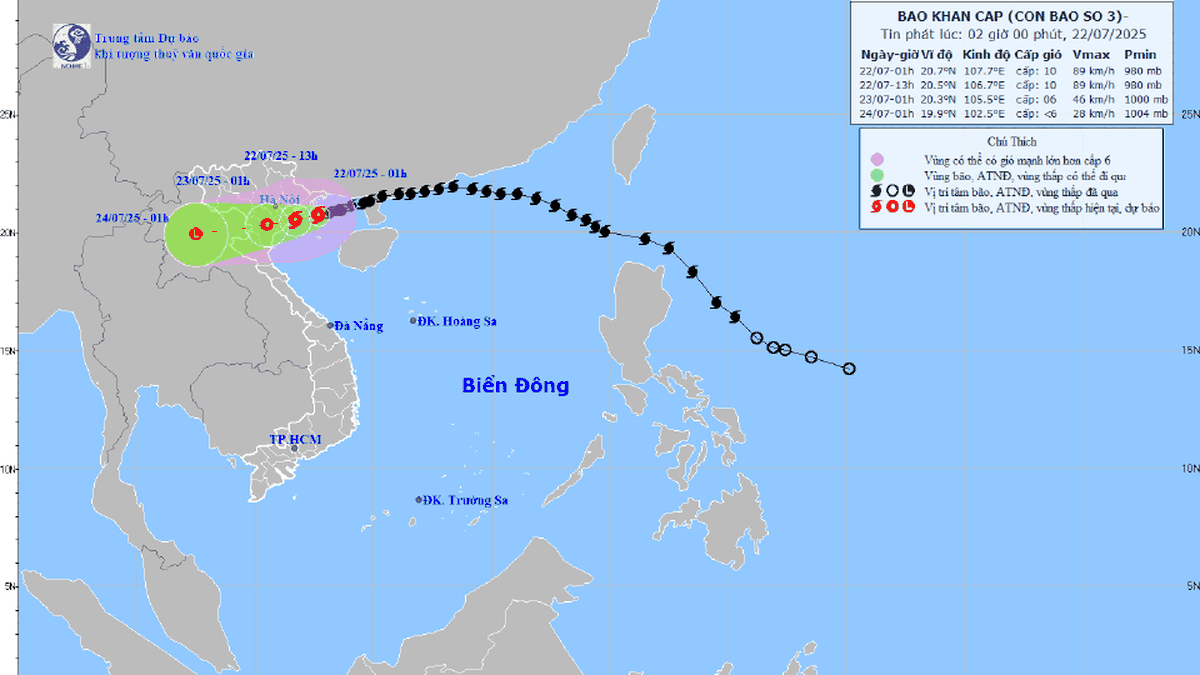














![[Photo] National Assembly Chairman Tran Thanh Man visits Vietnamese Heroic Mother Ta Thi Tran](https://vphoto.vietnam.vn/thumb/1200x675/vietnam/resource/IMAGE/2025/7/20/765c0bd057dd44ad83ab89fe0255b783)











































































Comment (0)